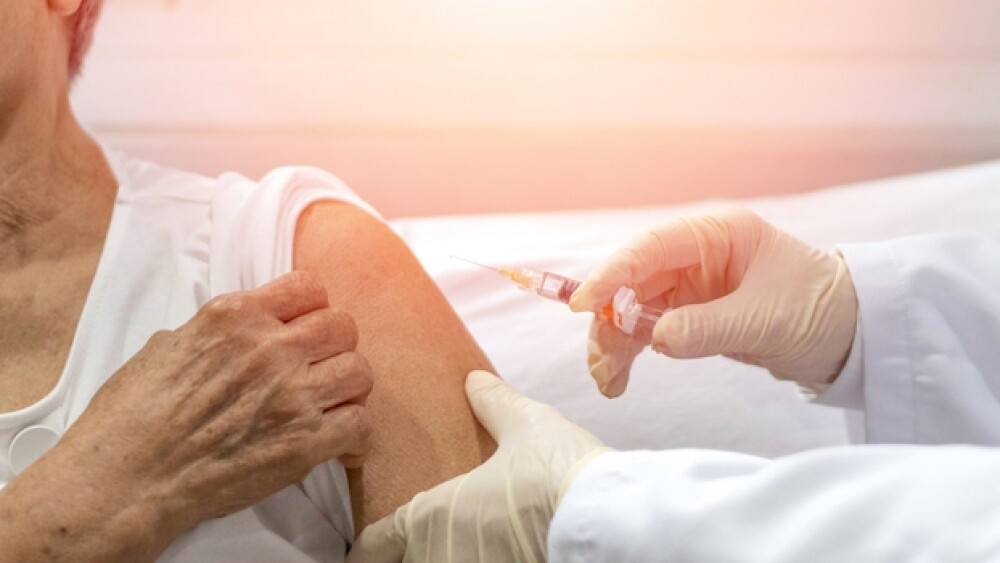Moderna published second interim analysis of its open-label Phase I trial of its COVID-19 vaccine, mRNA-1273, in The New England Journal of Medicine.
Moderna published second interim analysis of its open-label Phase I trial of its COVID-19 vaccine, mRNA-1273, in The New England Journal of Medicine. This particular data focused on two age cohorts, one ages 56-70 and the other 71+. It presented results through Day 57, which was one month after the second dose. The vaccine requires two doses 28 days apart.
This data was an extension of the company’s Phase I safety trial, which was conducted in people aged 18 to 55. It evaluated two doses of the vaccine, 25 micrograms and 100 micrograms. The extension study evaluated 40 adults.
The results indicated that the older volunteers who received two injections of the 100- microgram dose 28 days apart produced immune responses about equivalent to what was observed in younger adults.
Evan Anderson, one of the trial’s lead researchers from Emory University in Atlanta, told Reuters that the findings were reassuring, because immune responses tend to be weaker with age.
Moderna is currently running a much larger Phase III trial in 30,000 people using the higher dose.
Side effects observed included headache, fatigue, body aches, chills and injection site pain. They were classified mostly mild to moderate. There were, however, two patients who had severe reactions.
One patient developed a grade 3 fever, which is classified as 102.2 degrees F (39 degrees C) or higher, after receiving the lower dosage. This patient was in the 56-70-year-old cohort. Another developed fatigue severe enough to temporarily halt daily activities. Generally, side effects appeared quickly after receiving the vaccine and resolved quickly. This patient was in the 71+ cohort.
Anderson said, “This is similar to what a lot of older adults are going to experience with the high dose influenza vaccine. They might feel off or have a fever.”
Norman Hulme is one of the people who took the lower dose of the vaccine. He is a 65-year-old senior multimedia developer at Emory. “I really had no side effects at all,” he told Reuters.
The company used various laboratory tests to determine the presence of neutralizing antibody activity before and after the patients received the vaccine. None had detectable neutralizing responses in any of the assays before vaccination, and all patients demonstrated “robust neutralization activity” 14 days after the second vaccination.
“These interim Phase I data suggests that mRNA-1273, our vaccine candidate for the prevention of COVID-19, can generate neutralizing antibodies in older and elderly adults at levels comparable to those in younger adults,” said Talk Zaks, Moderna’s chief medical officer. “Given the increased morbidity and mortality of COVID-19 in older and elderly adults, these data give us optimism in demonstrating mRNA-1273’s protection in this population, which is being evaluated in the Phase III COVID study.”
The COVID study was launched in late July. Although President Trump has indicated he expects a vaccine will be available before the November 3 presidential election, few in the industry suggest that is possible or likely. In terms of companies in late-stage vaccine development in the U.S. and Europe, only the Pfizer and BioNTech group suggests they may have data available by the end of October. And even then, they would only have manufactured hundreds of thousands of doses, not the millions needed for even first-wave distribution.
As of September 17, Moderna’s 30,000-patient COVE trial had enrolled 25,296 volunteers and only 10,025 had received the second vaccination.
In a statement to the Boston Globe at the time, Stephane Bancel, Moderna’s chief executive officer, said the company would probably know in November if the vaccine was safe and effective. He also said they would be able to deliver 100 million doses to the U.S. government in the “first few months of 2021.”
The other group that may have a vaccine available by the end of the year is AstraZeneca and the University of Oxford. The trial is still on a clinical hold in the U.S. after a UK patient reported a potential severe reaction to the vaccine called transverse myelitis, a spinal inflammatory disorder. It has resumed in the UK.





